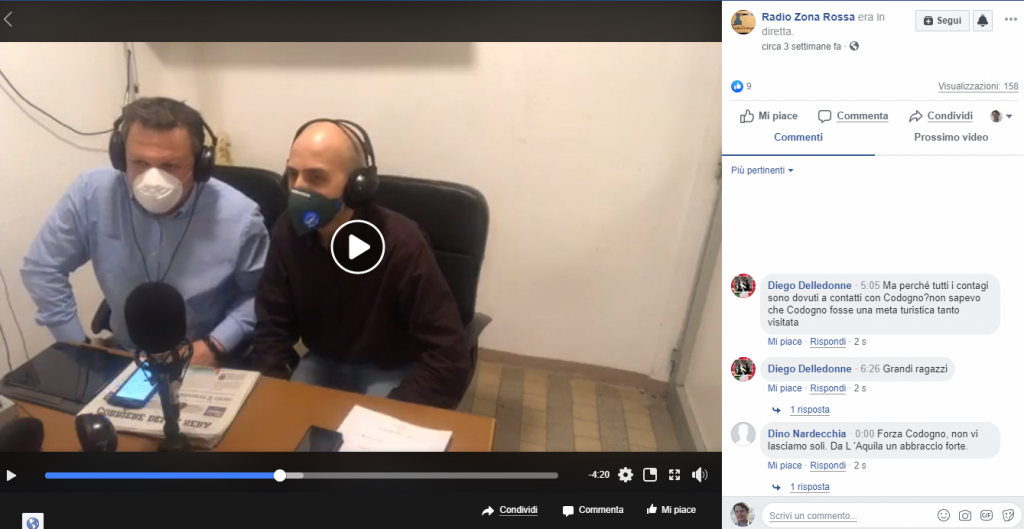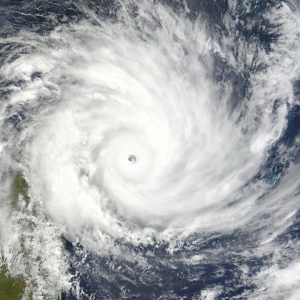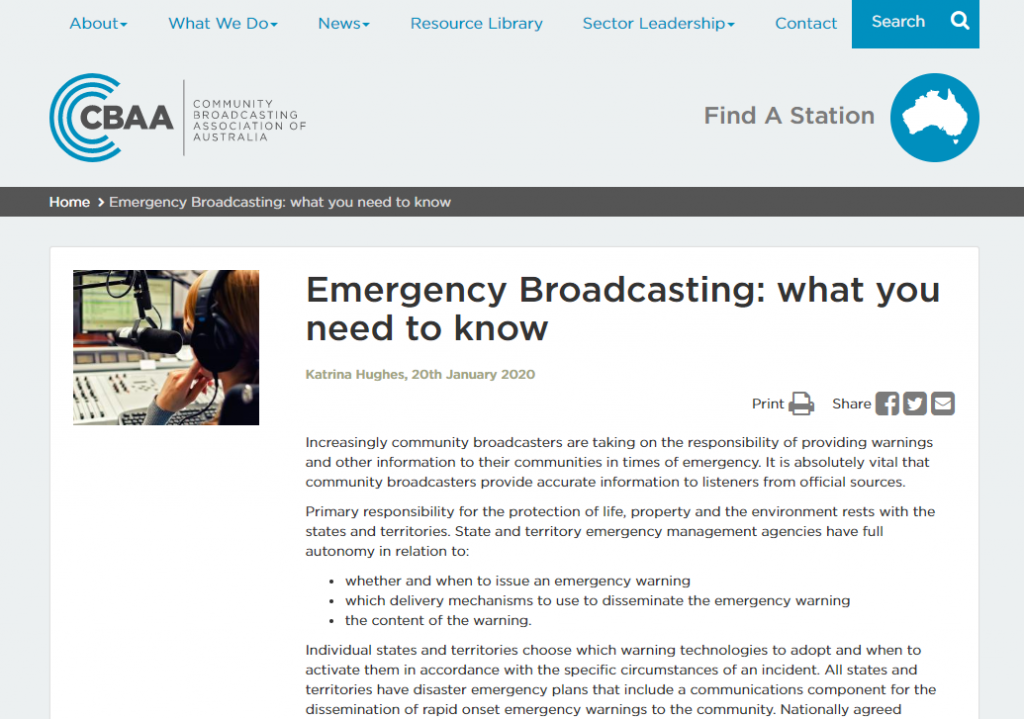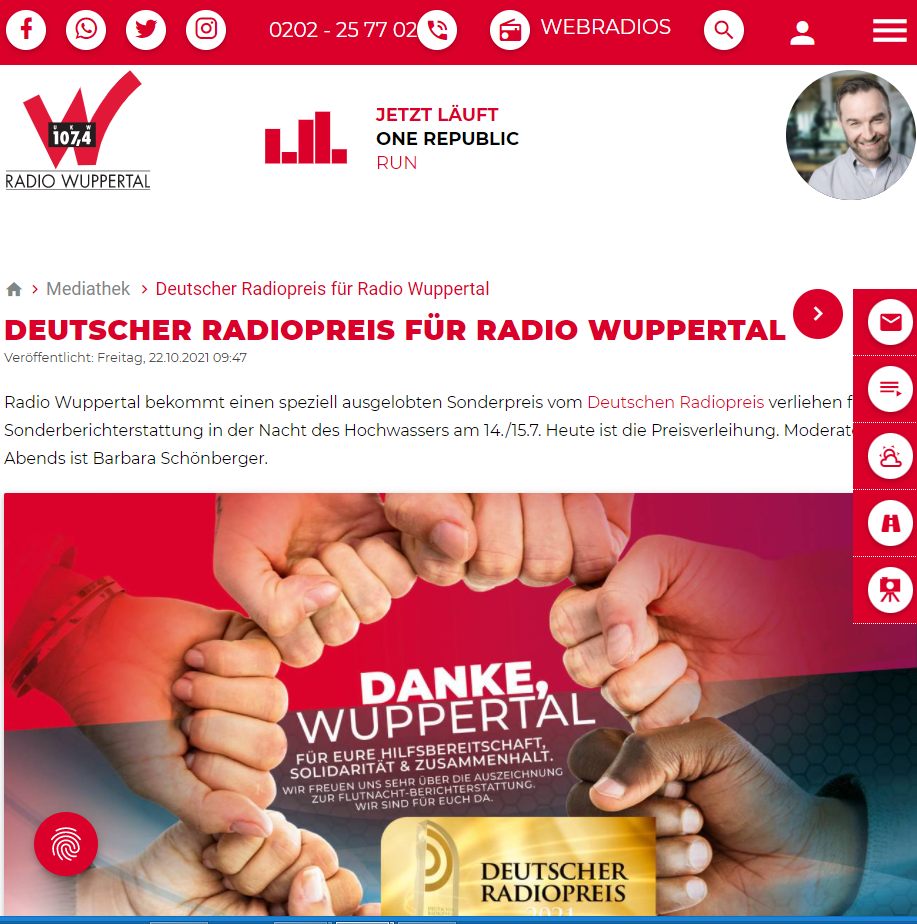
German Radio Prize for the report on the night of the flood of 14-15 July 2021
Source
After the floods that devastated North Rhine-Westphalia and Rhineland-Palatinate in July 2021, the role of the media in emergencies is being discussed. With such large-scale disasters, which increasingly strike suddenly, in addition to an early warning system such as sirens, it’s necessary to manage the rescue effort and inform the population. Radio is the most reliable medium for these tasks because it has been shown that mobile phones and internet networks tend to overload quickly and break down in such emergencies. Georg Rose, editor-in-chief of Radio Wuppertal, which received an award for its work during the floods, talks in an interview with Radioszene about how broadcasters can support the civil protection network, for example by being equipped with generators to keep the signal on the air and the editorial staff active for the crucial first 24 hours.
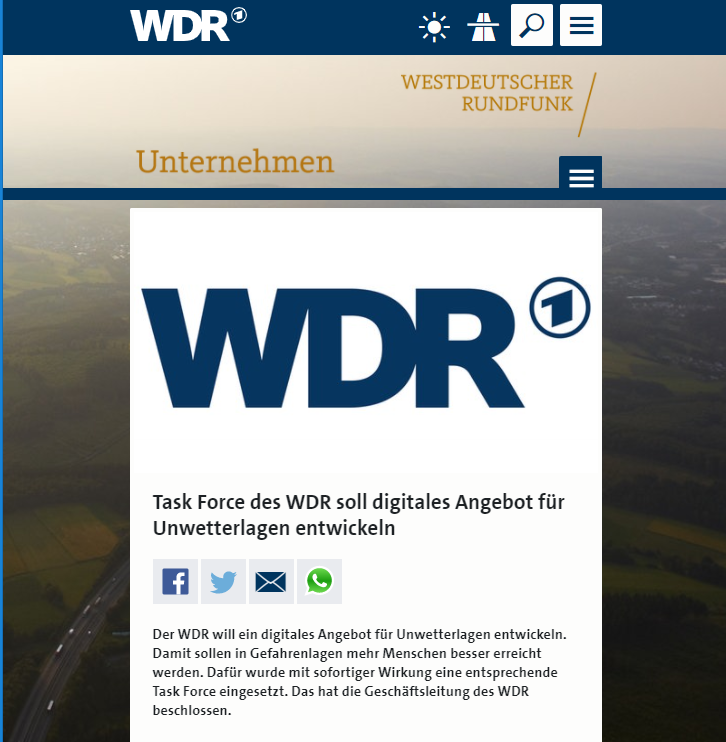
Source
RadioSzene, a website for radio producers, published several articles on the role of the media during the flood emergency and possible countermeasures. Among them is an interview with Michael Radomski, in which the managing director of the Uplink group (over-the-air connection services) suggests the use of VHF channels (radio, TV, Internet, alarm applications and SMS) because they have proved to be less prone to interference and interruptions. There is also talk of the task force set up by the management of the WDR (Westdeutscher Rundfunk, public radio and television in North Rhine-Westphalia), which is to develop a digital offering capable of operating in adverse weather conditions, reaching as many people as possible in dangerous situations.
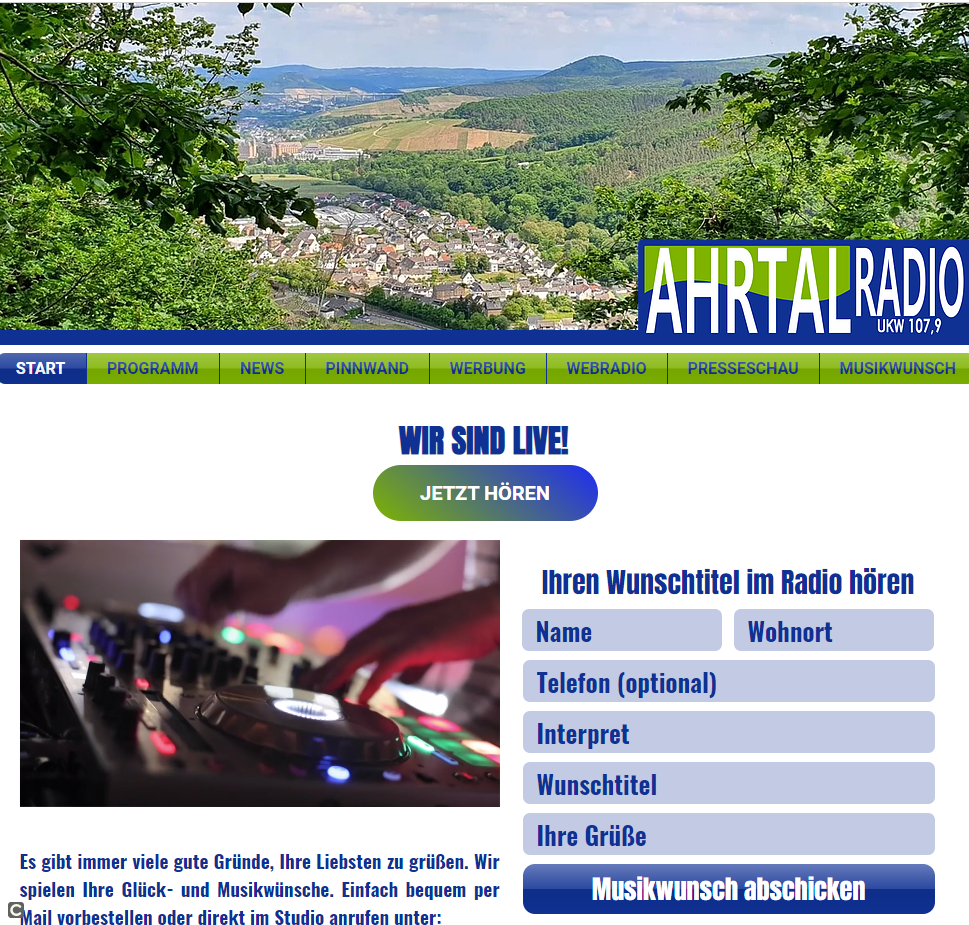
Source
To support the reconstruction, a temporary local radio station was even set up for the Bad Neuenahr-Ahrweiler area, which had no local station. Ahrtalradio, broadcasting on 107.9, was created with the support of 20 radio producers from all over Germany to boost the economy, trade, tourism, society and associations. Listeners can introduce themselves, make suggestions and offer jobs. Companies, restaurateurs and service providers affected by the flooding receive 60 free spots to inform customers about the resumption of business.
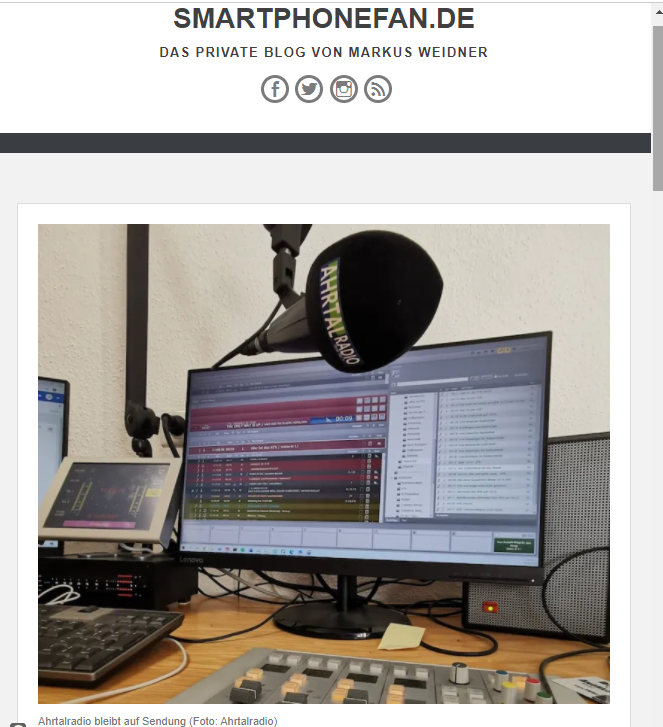
Source

